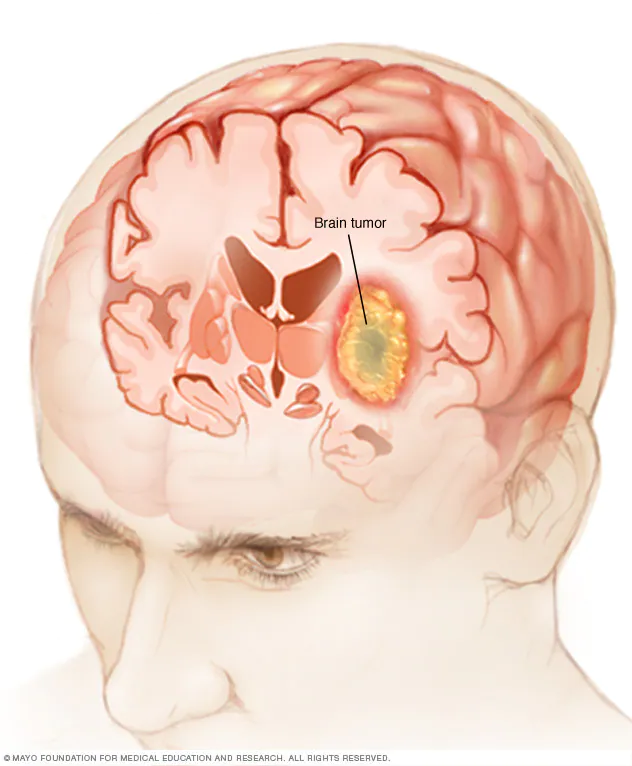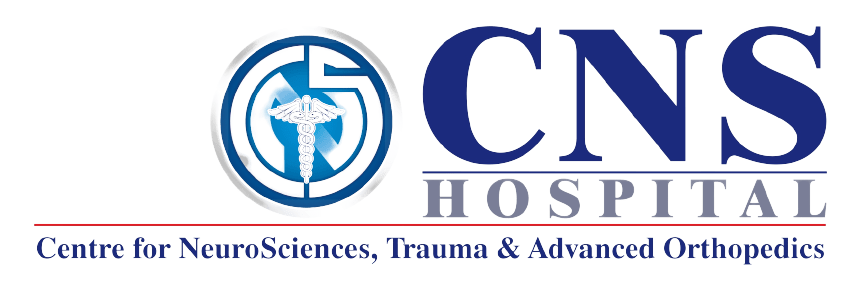Brain Tumor treatment in Nashik
Brain Tumor
A brain tumor is an abnormal growth of cells within the brain or surrounding tissues. These tumors can be benign (non-cancerous) or malignant (cancerous) and can cause a variety of symptoms depending on their size and location.
There are two main types of brain tumors: primary and metastatic. Primary brain tumors start in the brain or spinal cord tissue, while metastatic brain tumors originate elsewhere in the body and spread to the brain through the bloodstream.
Brain Tumor seeks immediate medical attention. Visit CNS Hospital for the brain tumor treatment in Nashik. CNS Hospital is specialized in providing treatment related to neurology, cosmetic surgery, advanced orthopedic treatments, etc.
Some common symptoms of brain tumors include headaches, seizures, changes in vision, hearing, or speech, weakness or numbness on one side of the body, difficulty balancing or walking, and personality or behavioral changes.
Diagnosis of brain tumors typically involves a combination of imaging tests such as MRI or CT scans, as well as a biopsy to determine the type of tumor and its level of aggressiveness.

Treatment options for brain tumors may include surgery, radiation therapy, chemotherapy, or a combination of these approaches. The choice of treatment depends on the type and location of the tumor, as well as the overall health of the patient.
Early diagnosis and treatment are critical for improving outcomes for people with brain tumors. Regular check-ups and monitoring of symptoms can help identify potential problems and allow for prompt intervention.
Causes of Brain Tumor
The exact causes of brain tumors are not yet fully understood, but there are some known risk factors that can increase the likelihood of developing a brain tumor.
Some of the known risk factors for brain tumors include:
Age: Brain tumors can occur at any age, but they are more common in older adults.
Genetics: In some cases, brain tumors can be caused by genetic mutations that are passed down through families.
Exposure to radiation: Exposure to ionizing radiation, such as radiation therapy for other cancers, can increase the risk of developing a brain tumor.
Immune system disorders: People with weakened immune systems, such as those with HIV/AIDS or those who have received an organ transplant, have a higher risk of developing brain tumors.
Environmental toxins: Exposure to certain environmental toxins, such as pesticides or chemicals in plastic, may increase the risk of brain tumors.
Family history: In some cases, brain tumors may run in families.
It is important to note that in many cases, the exact cause of a brain tumor is not known, and many people with brain tumors have no known risk factors. If you have concerns about your risk of developing a brain tumor, it is important to talk to your doctor.
Symptoms of Brain Tumor
The symptoms of a brain tumor can vary depending on the size and location of the tumor, as well as the rate of growth. Some common symptoms of a brain tumor include:
Headaches: Headaches are a common symptom of brain tumors. They may be more severe in the morning or when lying down and may worsen over time.
Seizures: Seizures are another common symptom of brain tumors. They may cause convulsions or muscle twitches and may occur in people who have never had seizures before.
Nausea and vomiting: Nausea and vomiting can occur when a brain tumor presses on the part of the brain that controls nausea and vomiting.
Changes in vision: A brain tumor can cause changes in vision, such as blurring or double vision.
Changes in speech or hearing: A brain tumor can affect the part of the brain that controls speech and hearing, leading to changes in the way a person speaks or hears.
Weakness or numbness: A brain tumor can cause weakness or numbness on one side of the body or in one specific area.
Difficulty balancing or walking: A brain tumor can affect the part of the brain that controls balance and coordination, making it difficult to walk or maintain balance.
Changes in personality or behavior: A brain tumor can affect the part of the brain that controls personality and behavior, leading to changes in mood, personality, or behavior.
It is important to note that these symptoms can also be caused by other conditions, so it is important to talk to your doctor if you are experiencing any of these symptoms.
Diagnosis of Brain Tumor
The diagnosis of a brain tumor typically involves a combination of tests and procedures. Some of the common diagnostic steps for brain tumors include:
Physical exam: The doctor will perform a physical exam to check for any signs of a brain tumor, such as changes in vision, hearing, or reflexes.
Imaging tests: Imaging tests, such as magnetic resonance imaging (MRI) or computed tomography (CT) scan, can provide detailed images of the brain and help identify the presence of a brain tumor.
Biopsy: A biopsy involves removing a small sample of the tumor tissue and examining it under a microscope to determine the type of tumor and its level of aggressiveness.
Neurological exam: A neurological exam involves assessing the function of the nervous system, including reflexes, strength, coordination, and balance.
Blood tests: Blood tests can help rule out other potential causes of symptoms and provide information about the overall health of the patient.
The diagnosis of a brain tumor can be a complex process, and it is important to work closely with a team of healthcare providers, including neurologists, neurosurgeons, and oncologists, to ensure accurate diagnosis and appropriate treatment.
How tumor can be removed?
The surgical removal of a brain tumor is a common treatment approach, especially for tumors that are located in accessible areas of the brain. The goal of surgery is to remove as much of the tumor as possible while minimizing damage to healthy brain tissue. The surgical procedure used will depend on the size and location of the tumor.
Some of the surgical approaches for brain tumors include:
Craniotomy: This involves removing a portion of the skull to access the brain and remove the tumor.
Endoscopic surgery: This involves inserting a thin tube with a camera and surgical tools through a small incision in the skull to access and remove the tumor.
Stereotactic radiosurgery: This is a non-invasive procedure that uses high-energy radiation to destroy the tumor cells.
In some cases, surgery may not be possible, or the tumor may be too large or located in a sensitive area of the brain. In these cases, other treatment options such as radiation therapy or chemotherapy may be recommended.
It is important to work closely with a team of healthcare providers, including neurologists, neurosurgeons, and oncologists, to determine the most appropriate treatment approach for your specific situation.
Prevention of Brain Tumor
Currently, there is no surefire way to prevent brain tumors from developing. However, there are certain steps you can take to reduce your risk of developing a brain tumor or catching it early. Here are some suggestions:
Avoid exposure to radiation: Exposure to ionizing radiation, such as radiation therapy for other cancers or repeated CT scans, can increase the risk of developing brain tumors. So, it is important to limit unnecessary exposure to radiation.
Protect your head: Head injuries can increase the risk of developing brain tumors, so it is important to wear a helmet when riding a bike or participating in contact sports.
Eat a healthy diet: A diet rich in fruits, vegetables, and whole grains may help reduce the risk of brain tumors.
Quit smoking: Smoking has been linked to a higher risk of brain tumors, so quitting smoking is important.
Stay physically active: Regular physical activity can help reduce the risk of developing brain tumors.
Regular medical check-ups: Regular check-ups with a doctor can help detect any potential brain tumors at an early stage.
It is important to remember that brain tumors can still occur despite taking preventive measures. Therefore, it is important to be aware of the symptoms of a brain tumor and seek medical attention if you experience any of them. Visit CNS Hospital today for cost-effective brain tumor treatment in Nashik.

